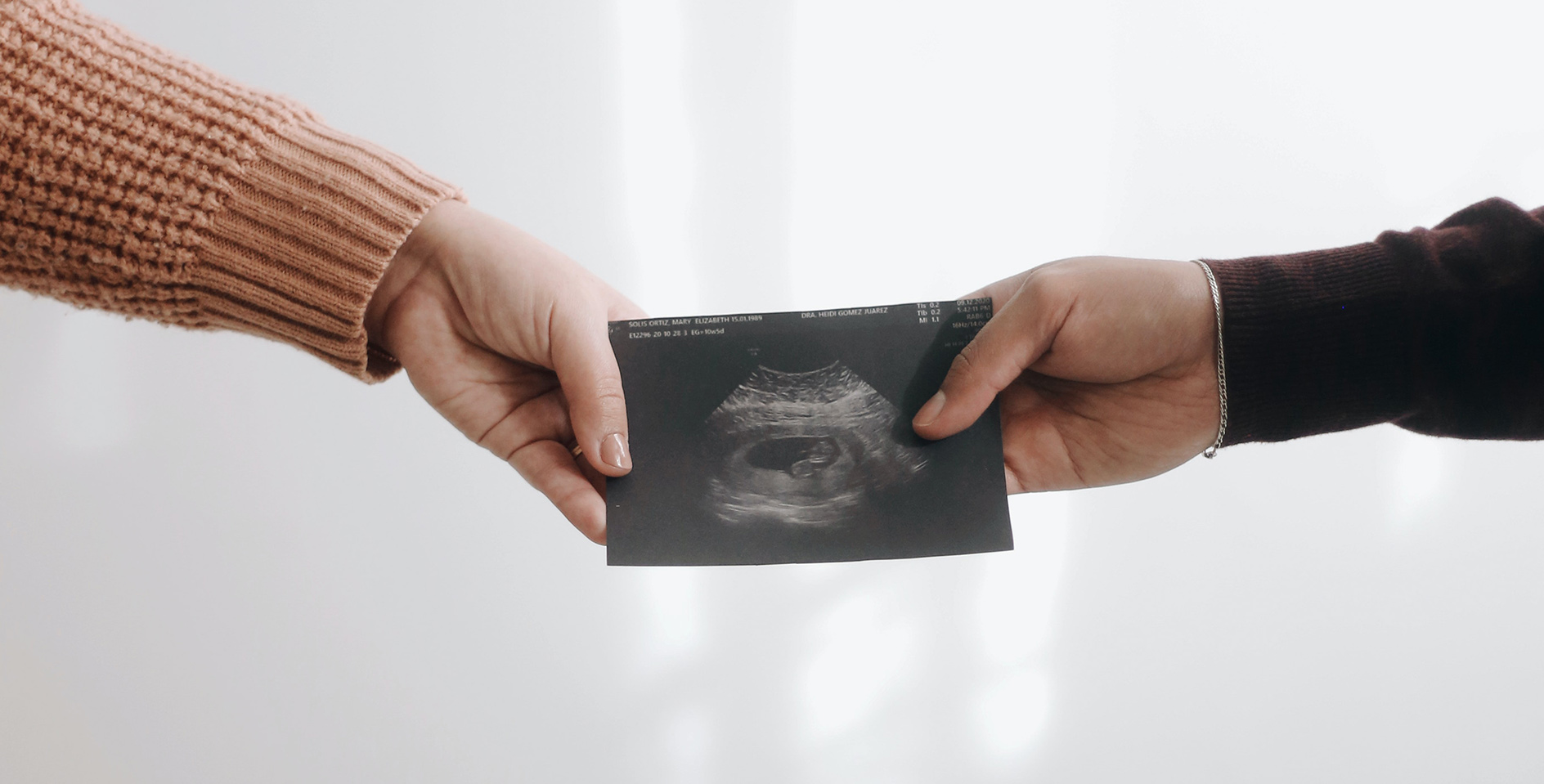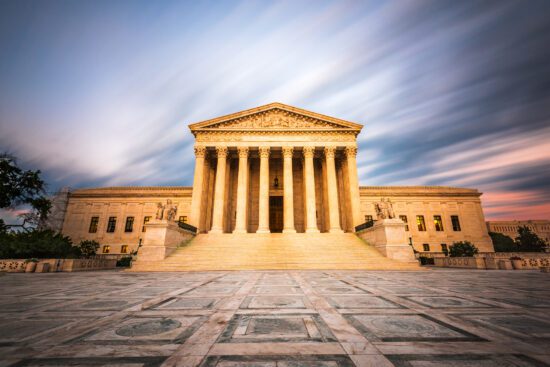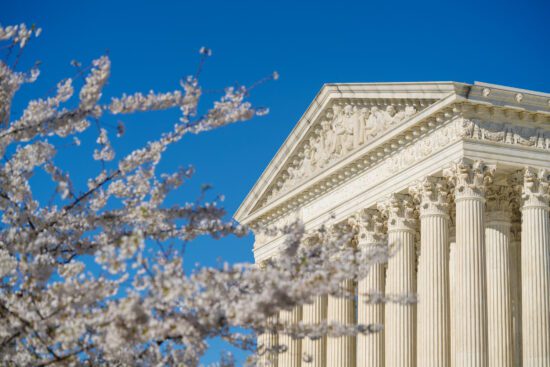Last week the Supreme Court of the United States (SCOTUS) issued two rulings dealing with Texas’ Senate Bill 8 (SB 8), or the Texas Heartbeat Act. In Whole Woman’s Health v Jackson, the court considered whether the petitioners (abortion providers) may pursue a pre-enforcement challenge to SB8. In United States v. Texas the court addressed the federal government’s separate challenge of SB8.
SB 8, which prohibits physicians from “knowingly perform[ing] or induc[ing] an abortion on a pregnant woman if the physician detected a fetal heartbeat for the unborn child” unless a medical emergency prevents compliance, was allowed to go into effect in September, after SCOTUS declined to issue an injunction requested by abortion providers in Texas. This challenge, known as Whole Woman’s Health v. Jackson, made its way back up to SCOTUS in the October docket, to determine if abortion providers may challenge the constitutionality of SB8.
Last week, the court issued its opinion in Whole Woman’s Health v Jackson, concluding “that a pre-enforcement challenge to SB 8 under the Federal Constitution may proceed past the motion to dismiss stage against certain of the named defendants but not others.” The ruling stated that some of the named defendants in the case, including specific judges and clerks, could not be sued for enforcing SB8 under the doctrine of sovereign immunity, which protects government actors from being sued for carrying out their duties. Other defendants in the case, including Texas Medical licensing officials, are allowed to be sued.
Ultimately, the ruling means that for now SB 8 still stands, but abortion providers are now able to continue to challenge the law in the lower courts. The opinion by Justice Gorsuch stresses “the ultimate merits question” of whether the Texas law is constitutional “is not before the Court.”
At the same time, the Court also released its opinion in United States v Texas. The case originated on Sept. 9, when U.S. Attorney General Merrick Garland announced the Department of Justice was filing suit in federal court against the state of Texas over SB 8. The suit sought a “declaratory judgment that (the law) is invalid under the Supremacy Clause and Fourteenth Amendment, is preempted by federal law, and violates the doctrine of intergovernmental immunity.” The suit sought to enjoin the “State of Texas, including its officers, employees, and agents, including private parties” who would bring a suit under SB 8.
The court ruled that the federal challenge of SB 8 “as improvidently granted,” meaning the court should not have initially accepted the case.
What does the law do?
SB 8 bans abortion once a fetal heartbeat is detected, which typically occurs anywhere between five and eight weeks into a pregnancy. There are no exceptions made for rape or incest, but there is an exemption made for “medical emergencies.”
The Texas Legislature passed SB 8, and Gov. Greg Abbott signed the legislation into law in May. The bill took effect on Sept. 1, 2021. Of note, ERLC trustee Kelly Hancock, a state senator in Texas, was a primary sponsor of this legislation.
What makes this different from other attempts to limit abortion?
A number of states have introduced fetal heartbeat bills, but until now, they have been blocked by the courts. While the Texas Heartbeat Act’s aim is similar to the other heartbeat bills, the enforcement mechanisms are different.
The law takes a novel legal approach to limit abortion by tasking enforcement of the measure “exclusively through private civil actions.” Essentially, the law allows any private citizen to bring a civil lawsuit against any individual who “performs or induces” an abortion, or “knowingly engages in conduct that aids or abets” an abortion, including the payment for or reimbursing the costs for an abortion. Individuals who prevail in their lawsuit will be awarded “statutory damages in an amount of not less than $10,000.”
Rebecca Parma, a senior legislative associate with Texas Right to Life, notes, “No heartbeat law passed by another state has taken this strategy. Additionally, the bill does not punish women who obtain abortions.”
What does this mean for the Court’s abortion jurisprudence?
The Court recently heard a challenge to Mississippi’s ban on abortion at 15 weeks in a case titled Dobbs v. Jackson Women’s Health Organization. However, Mississippi has asked the Court to completely overturn both the Roe v. Wade and Planned Parenthood v. Casey decisions that have protected abortion for the last 50 years. The Court’s decision to not intervene in this instance, where a state law circumvents Roe, could reasonably be seen as an indication the new conservative majority may change direction as it relates to abortion. However, there are still several challenges to SB 8 working their way through the court system that could affect the law.
The ERLC submitted an amicus brief in the Dobbs case stating that the U.S. Constitution “does not create a right to an abortion of an unborn child before viability or at any other stage of pregnancy. An asserted right to abortion has no basis in constitutional text or in American history and tradition.”
How should Christians think about this development?
As we have articulated elsewhere, every committed pro-life Christian wants the immediate end and eradication of abortion. In fact, we want to strive for a culture where abortion is illegal and unthinkable. As laws are introduced and litigated, Christians can and should be on the frontlines of caring for vulnerable women and their preborn babies. We have the opportunity to demonstrate the love of Christ and share the good news of the gospel by tangibly serving women in crisis.
While we work toward that objective, we should appreciate every step that can be taken –– whether accomplished through legislative channels, court decisions, or cultural developments –– to save one additional preborn life. Until that day arrives, the ERLC will always stand for life in the public square, before the courts, and before Congress.













